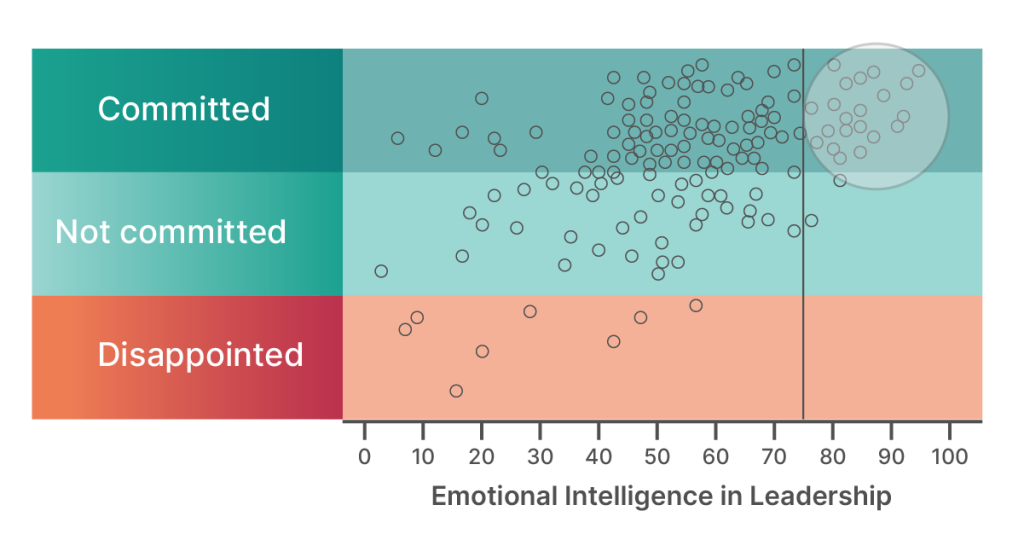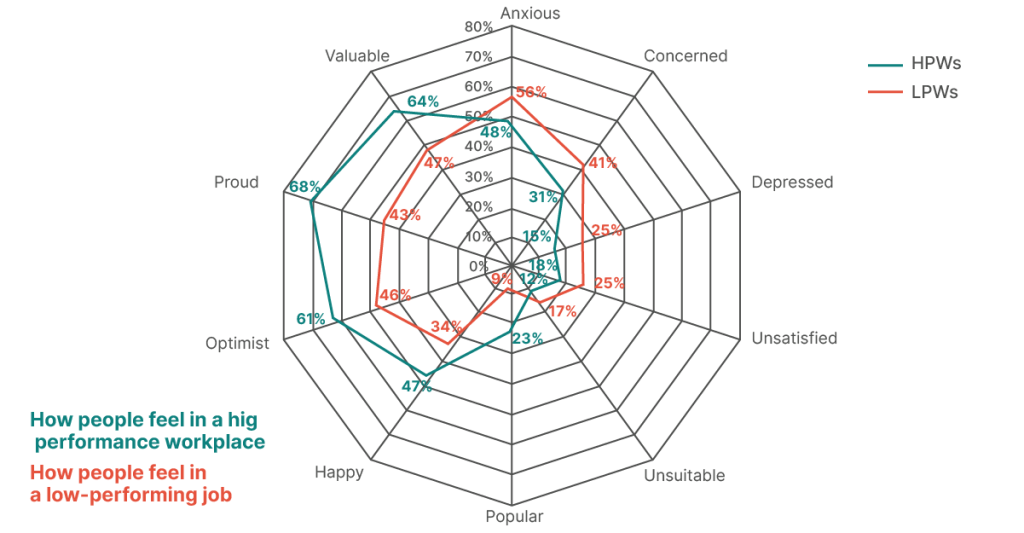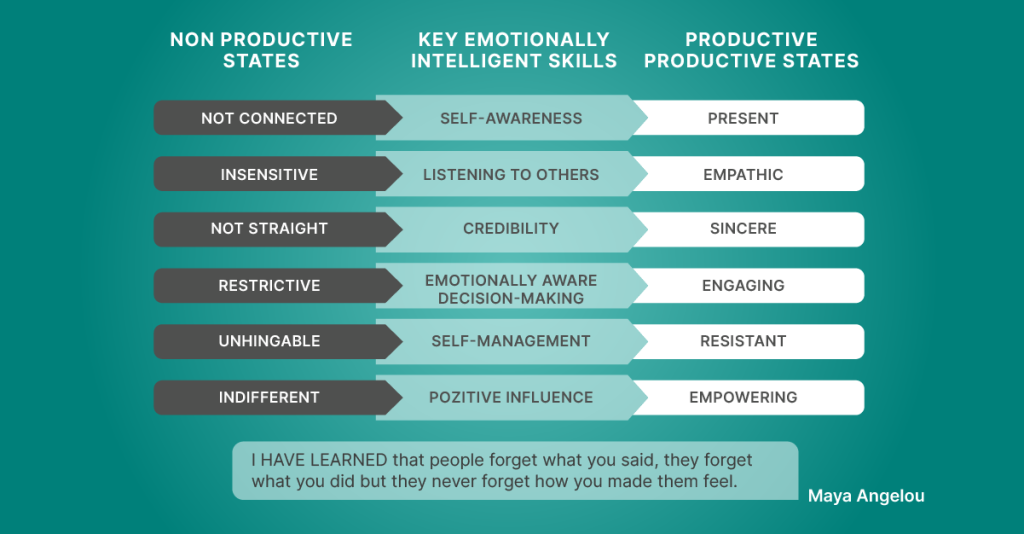Improving emotional intelligence (EQ) can also improve business performance – but what does it take?
Previous studies have already shown that there is a strong correlation between a company’s performance and employee engagement. It has also been shown that employee engagement is not independent of the emotional intelligence of the leader.
A lack of emotional intelligence makes it much harder to strive for results. EQ is a more reliable predictor of expected performance than any other method. Often, otherwise talented people misuse their time and expertise, and companies and individuals both lose out. Failures in EQ are a problem that many companies need to address.
“Leaders with high emotional intelligence are able to sustain the commitment, enthusiasm, productivity and success of their colleagues.”

Not only do leaders with well-developed emotional intelligence contribute to a more pleasant and collaborative work environment, but higher EQ also has a direct impact on business performance. True leadership emerges from personal influence – a good leader strives to get others to complete tasks and achieve goals. However, it is only possible to influence subordinates if strong bonds and cooperation have been established beforehand. This is not an easy task, and knowledge alone is not enough for it. Communication skill is the ability to influence others, but it also requires effective tools. The more effective tools we have, the better the communication, the greater the positive impact and the greater the results.
“There is a direct, clear link between performance and how colleagues feel at work. “

Everybody knows successful people who may not have a degree, but they are very good communicators, very good at managing their human relationships. At the same time, many of you will have met people with otherwise brilliant professional skills who have underperformed because of poor communication skills or lower EQ.
- The questions every leader with high EQ should ask themselves:
- Do I know what effect my behaviour is currently having on others?
- How can I tell if someone else needs support?
- How well do I see different situations from the perspective of others?
- Is my communication style appropriate to the situation?
- Can I foresee how others will react to certain things?
- How often do I share my feelings with others?
- Am I receptive to the feelings and thoughts of others?
- Do I encourage others to do this?
- Am I consistent in what I communicate and what I do?
- Do I keep my promises?
- Do I usually ask others how they feel about certain decisions?
- Am I aware of the circumstances that distort and influence my decisions?
- How do I react in stressful situations?
- Am I a positive and energising influence on others?
- Am I constantly improving myself?
- Do I provide useful support to others?
- Do I contribute to a positive working environment?
- Am I moving others’ emotions in a positive direction?

But the most important question is whether the manager has a sufficiently effective digital tool to communicate these skills to his or her subordinates. CHEQ, our digital internal communication solution, which works across multiple platforms and devices, helps you to do this, so everyone from office workers to factory physical workers or field representatives on the move can be reached.
In addition to administrative tasks, CHEQ is also excellent for motivating subordinates, for example:
- It can be used to express empathy – communicating recognition, appreciation or gratitude to the collective or even to one or more selected groups of employees — a genuine interest in the opinions of others (involvement, opportunity to express opinions).
- Maintaining credibility – provide open and honest, regular communication where results or even difficulties can be easily and quickly communicated)
- Make emotionally informed decisions by getting the views of your subordinates (even through an anonymous questionnaire) – make better decisions by incorporating the views and emotions of others into the decision-making process
- It can be a key tool to encourage better performance as a primary channel for recognition, feedback and motivation
- Self-management – CHEQ makes developments and training more efficient, highlights their importance and availability, and helps in efficient time management


